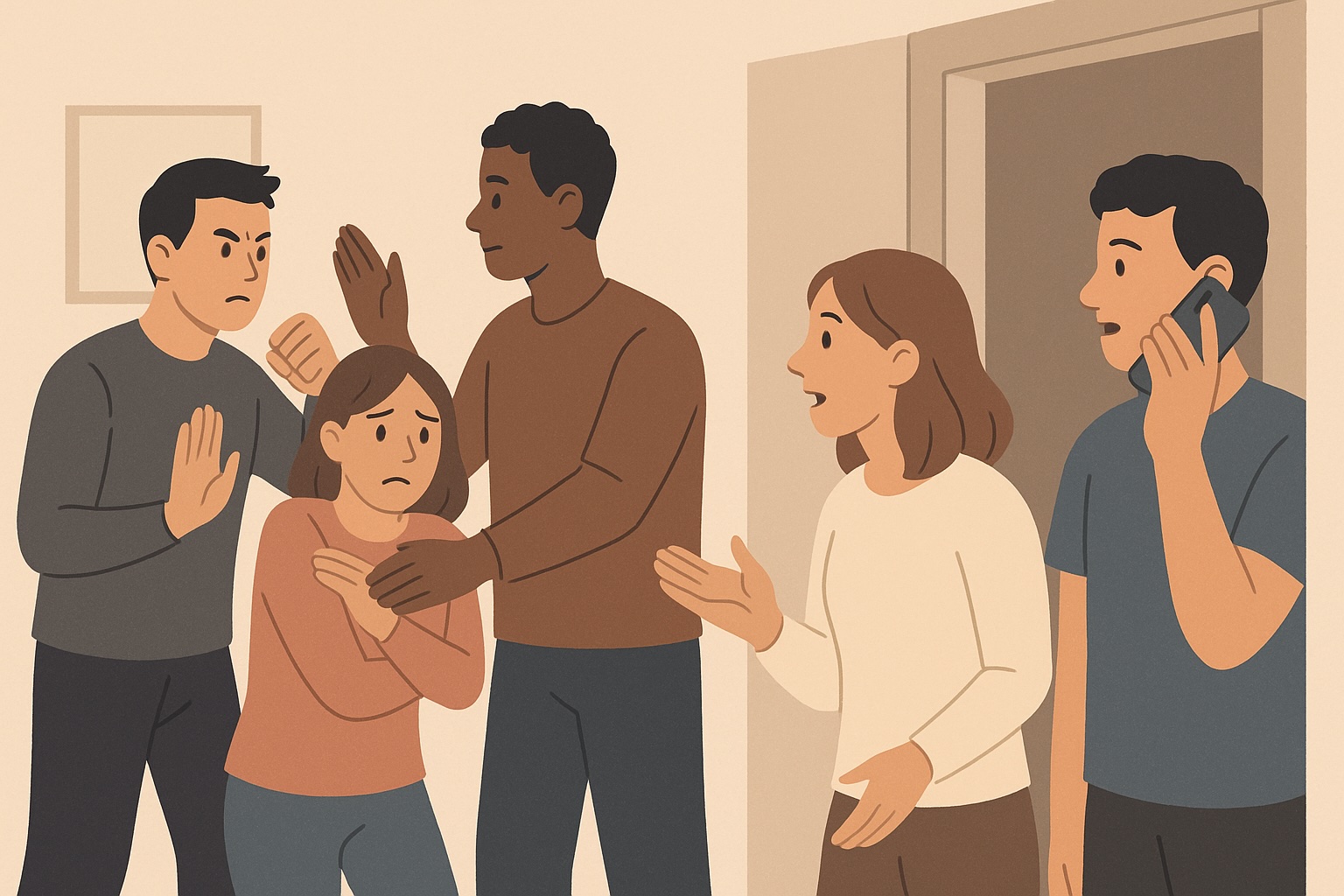A Guide to Safe Intervention: How to Help When You Suspect Abuse
Learn how to safely intervene when you suspect abuse. This guide provides actionable advice for bystanders, friends, and family, focusing on safe roles, practical tips, and clear boundaries to protect everyone involved.

What Counts as a Safe Intervention?
A safe intervention is any action that aids a person in an abusive situation without escalating the immediate danger. It focuses on supporting the person experiencing abuse, not on confronting or "fixing" the abuser. Safe intervention methods are often subtle and indirect.
Indirect Intervention: This involves taking steps that don't put you in direct contact with the abuser. This is often the safest and most effective approach. Examples include:
Calling a professional hotline for advice.
Contacting law enforcement if you believe someone is in immediate danger.
Making a report to a local social services agency.
Direct Intervention (with Extreme Caution): This should only be attempted in non-physical situations and with careful thought. A direct intervention could be a conversation with the person at risk, away from the abuser. The goal is to express concern and offer help, not to push them to take specific action.
Safe Intervention | Unsafe Intervention |
Calling a hotline for professional advice | Confronting the abuser directly |
Talking to the person in a private, safe space | Intervening during a physical altercation |
Offering a safe place to stay | Demanding the person leave the relationship |
Calling 911 if there is a direct threat of violence | Posting about the abuse on social media |
Roles for Bystanders, Friends, or Family
Your role is to be a supportive lifeline, not a savior. By focusing on these roles, you can help without putting yourself or the person at risk.
The Supporter: Your most important role is to be a non-judgmental listener. Let the person know you're there for them, no matter what they decide. Validate their feelings and avoid blaming them for their situation.
The Resource Connector: You can be a vital link to professional help. Do the research for them and provide them with information on local shelters, legal aid, or domestic violence hotlines. You can also offer to make the first call with them.
The Distractor: If you're a bystander witnessing a tense, public situation, a safe intervention can be as simple as creating a distraction. This could be pretending to know the person, asking for directions, or dropping something to break the tension and interrupt the behavior.
The Delegate: The safest and often most impactful role is to delegate to professionals. If you see a dangerous situation, call 911. If you have concerns but do not see immediate danger, contact a local domestic violence organization for guidance. They are trained to handle these situations.
Tips and Boundaries for Intervening
Even with the best intentions, it's easy to overstep. Keep these tips and boundaries in mind to ensure your actions are truly helpful.
Assess the Risk: Before you do anything, ask yourself: Is the situation safe for me to get involved? Is the person at risk in immediate danger? Trust your instincts. If a situation feels unsafe, the best action is to call a professional for help.
Keep Your Conversation Private: If you decide to talk to the person, do so in a private, quiet setting where they feel safe and can speak freely.
Focus on Behavior: Instead of saying, "Your partner is abusive," try to be more specific and focus on the actions you've observed. For example, "I was concerned when I saw your partner raise their voice at you."
Empower, Don't Command: The person experiencing abuse must be in control of their own decisions. Offer options, but do not pressure them to leave, report the abuse, or take any action they are not ready for.
Set Your Own Boundaries: Supporting someone through abuse is emotionally taxing. Recognize your own limits. It's okay to step back and encourage them to rely on professional support. Your safety and mental health are also important.
Intervening is a courageous act of compassion. By approaching it with a focus on safety and empowerment, you can make a meaningful difference in someone's life without putting anyone at greater risk.
